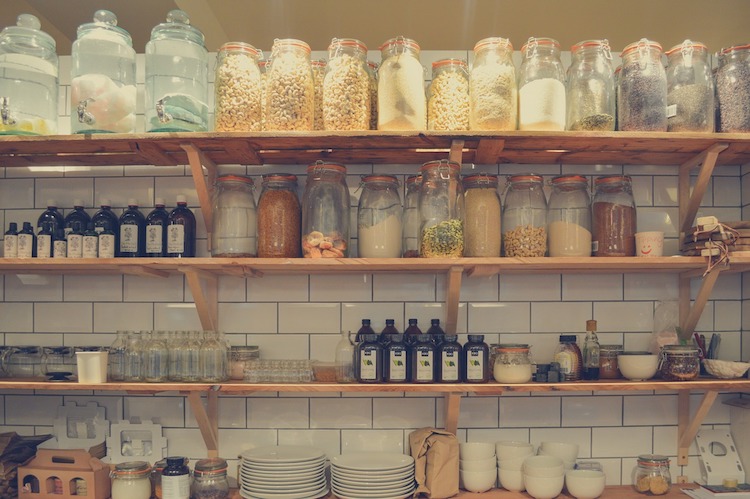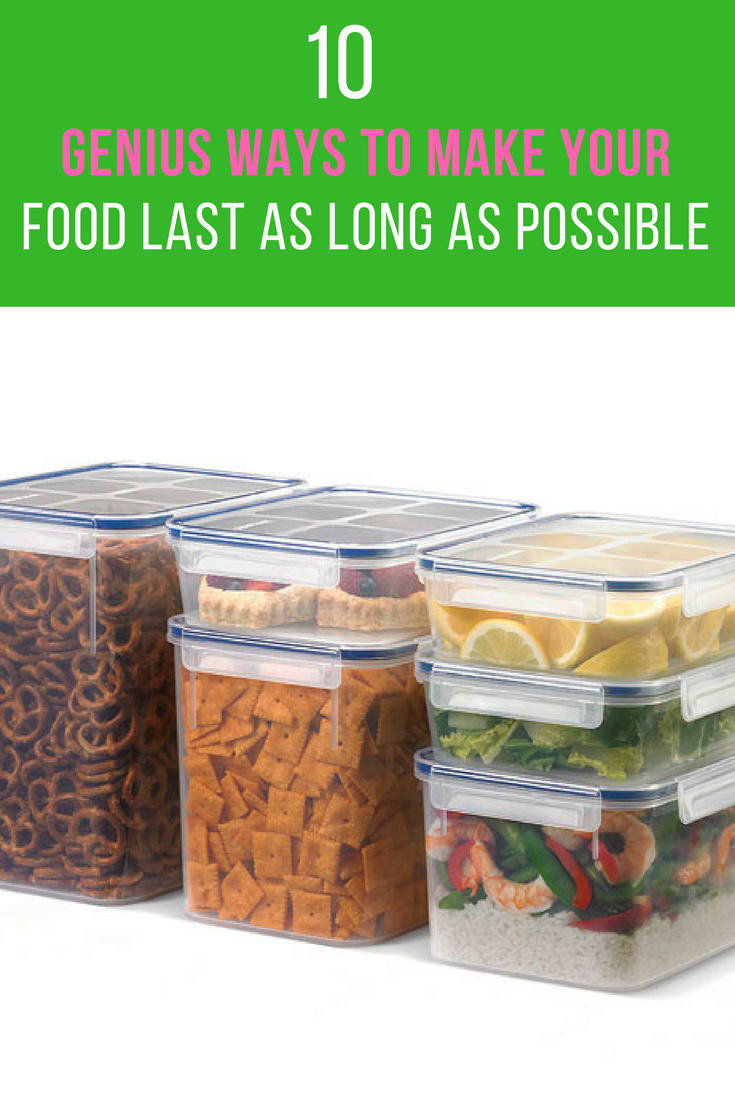
[adinserter block=”1″]
Fresh food doesn’t last long in the average household. Almost 40% of food created in the US ends up in landfills from trashed meals at home or rejects from farms during their production process.
However, one of the biggest reasons food is wasted every day is by delivery to the consumer.
Did you know that Americans toss out nearly 20 pounds of food a month? That’s nearly $2,000 dollars every year wasted on food that could have been consumed or repurposed.
When food is trashed, especially perfectly good food, you’re not just tossing out a delicious dish, you’re tossing out the production and energy costs it took to make as well as labor that was put into it.
Seems a lot more wasteful now, doesn’t it? Lucky for us, our country is fortunate enough to have tons of food available at our fingertips.
However, there are still ways you can help make your food last longer and help reduce your monthly amount of food waste.
[adinserter block=”4″]

1. Keep Your Food Fresh With an Ethylene Gas Absorber
Some fruits and vegetables produce ethylene gas which increases the aging of some food. However, the amount of gas depends on temperature and a list of other factors which include the environment of your pantry or fridge.
You can help decrease the amount of ethylene gas that can contribute to the decay of your food by purchasing an ethylene gas absorbed and installing it in your fridge, pantry, or wherever you house your fruit and vegetables.
2. Keep Bread Out Of The Fridge.
Believe it or not, bread doesn’t belong in the fridge! That’s right, it will actually have a longer shelf life in your pantry since colder temperatures cause the starch in bread to harden quicker than in a warmer environment.
3. Account For Everything In Your Fridge.
Fridges are more than just a place to put food, but also to prolong food life as well as protect our bodies from consuming harmful bacteria such as E. coli and Salmonella.
However, if you don’t keep your fridge clean, the protective properties of food can diminish and cause your food to spoil quicker.
One of the first steps to maximize your fridge’s effectiveness is to constantly check the temperature. Most fridges even come with an internal thermostat and by keeping a constant check on it, you can make sure your food is kept at a healthy 40 degrees to fight against being contaminated by harmful bacteria.
The next step is to keep your fridge clean at all times. Cross-contamination is easy when you keep a lot of food in one place. It’s important to always check the dates on your food, after all, once one piece of food is overgrown with mold it can grow to other foods, especially vulnerable fruit and vegetables.
The last step is to keep your fridge organized. We talked before about checking the dates and this is how you can develop your own system for date checking, bringing old food to the front and new food to the back.
After all, you’ll end up spending less money if you finish your old food first. Keep the top shelves of your fridge with leftovers since it is easier to reach and they could potentially spoil faster while keeping fruits and vegetables in crisper drawers in your fridge for a longer shelf life.
Related: 11 Shopping Tips For Buying Organic Food When Your On a Tight Budget
4. Make Sure You Recycle Any Food Waste
Believe it or not, over 80% of food that is trashed is actually edible and not consumed by the general public, according to the EU studies. This food makes it’s way to landfills to serve an unfulfilled life unless recycled.
Besides paper products, food is actually the number two type of item most likely found in landfills and are incredibly easy to re-purpose by recycling. Especially to reduce your carbon footprint, by recycling you can allow food to naturally decompose and prevent less carbon dioxide to poison the environment.
Instead, you allow it to fertile soil and increase healthy oxygen levels. By recycling your old food you can help change the environment for the better.
[adinserter block=”2″]
5. Line Your Greens With Paper Towels In Plastic Containers
You can easily extend the life of your greens by wrapping them in a paper towel and placing them in a plastic container in your fridge. This prevents your food from being crushed and allow the absorption of excess water.
In fact, studies have shown that it can extend the life of your greens by 10 days.
6. Do Not Store Milk on the Door of the Fridge
Always store your milk on one of the shelves instead of the refrigerator door. Keeping milk on the door can have a serious negative effect on its shelf life.
This is because it is too far away from the cooling unit of the fridge and does not stay as cold as it should.
7. Leftovers: Eat Them or Don’t Create Them
A lot of food waste comes from leftovers that go uneaten or are left so long in the fridge that they must be thrown out. If there is a lot of leftover food ending up in the trash can in your house, consider storing them near the front of your fridge or put them in clear containers.
If that does not work, try to only cook the food that will get eaten. That way, you will not have any leftovers. There are online resources that can help you to figure out the proper portion size for you and your family.
8. Wash Berries in Water and Vinegar
Giving your fresh berries a vinegar and water bath can prevent them from growing mold prematurely. Mix one cup of vinegar with three cups of water.
Wash your berries in this mixture, then rinse them and dry them completely. Doing this will kill any bacteria before they even reach the refrigerator.
Related: 10 Foods That Help You Sleep Through The Night
9. Pay Attention to the Labels
Expiration dates on food products in the United States are not regulated by any federal law. Many people do not realize this and take the “use by,” “sell by,” and “best before” dates as fast rules. These dates are most often not even related to food safety.
According to a recent survey, 90% of Americans are guilty of tossing out food prematurely because of a lack of understanding surrounding these dates. These dates are only meant to advise consumers.
They only take into affect the ideal time frame for freshness, not the actual date of expiration.
More often than not, food is safe to eat well past its expiration date. Unfortunately, companies still continue to print these misleading labels to persuade consumers to throw more food away and hence buy more.
10. Don’t Buy in Bulk Without a Plan
Though it may seem like a good money-saving technique, buying food in bulk can actually create more waste. If you do not have a plan for your bulk purchases, they can go bad before you eat them all.
There are ways you can make bulk perishable purchases last longer. Try freezing, pickling, canning, and dehydrating leftovers before they start to spoil. Prepare meals in larger quantities and freeze the leftovers. Share your bounty with family and friends.
Stop Wasting Food and Start Saving More
By making your food last longer you can lower your weekly food budget which can help you more in the long run. Especially with reducing waste, you can help improve your environment while re-purposing food on a daily basis.
With these helpful tips, hopefully you can start knocking them out one by one. Just start with one a week and build up from there.